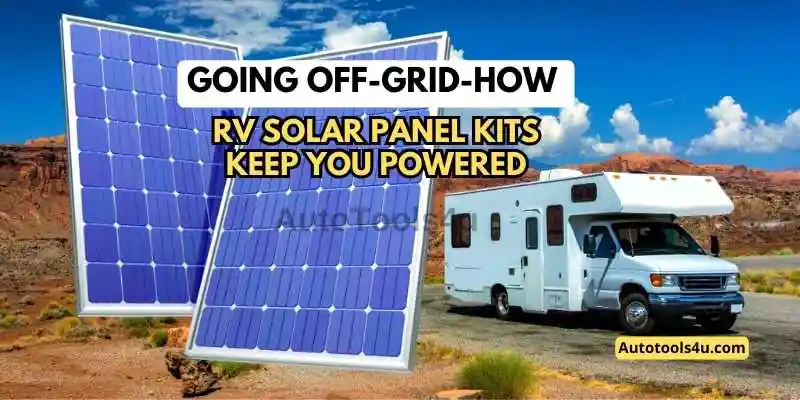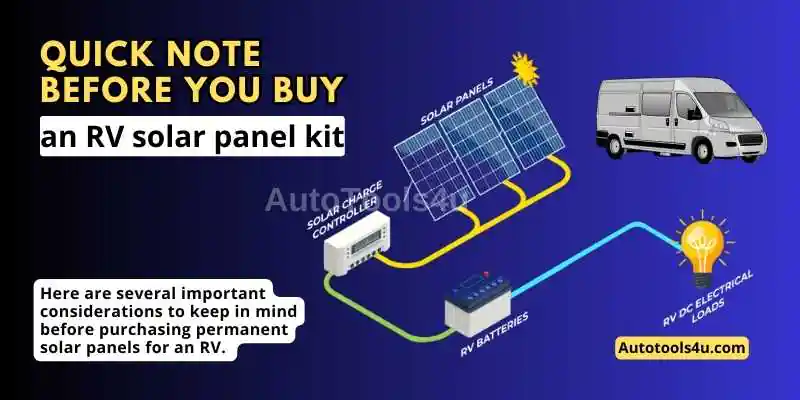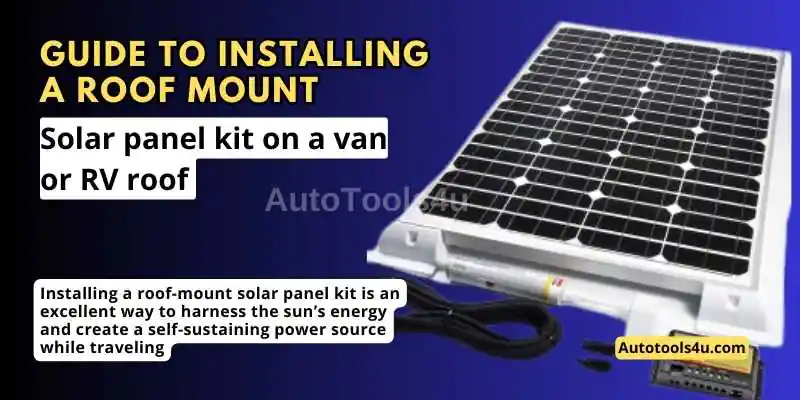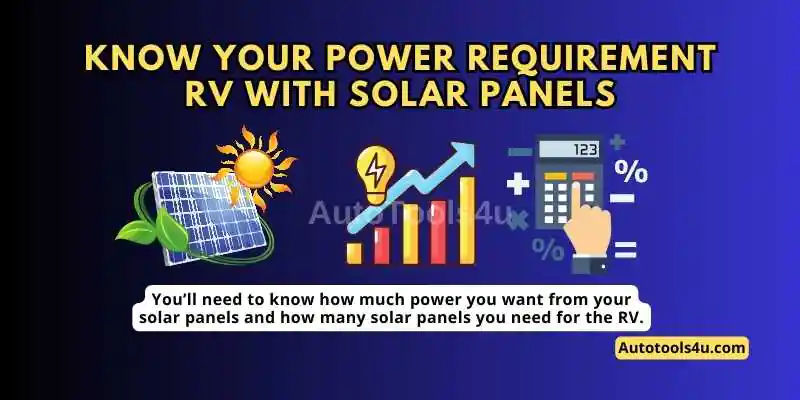In the pursuit of adventure and freedom, many RV enthusiasts are embracing the off-grid lifestyle, breaking free from the constraints of traditional campgrounds, and seeking remote destinations that are untouched by modern infrastructure. Going off-grid allows travelers to immerse themselves in nature’s beauty and experience a unique sense of independence on the road. However, this newfound freedom comes with the challenge of staying power in remote locations.
Enter RV solar panel kits, the ingenious solution that empowers nomadic travelers to harness the sun’s energy and maintain a constant power supply for their motorhomes, trailers, or campervans. In this article, we delve into the world of off-grid living and explore how RV solar panel kits revolutionize the way we travel, providing an eco-friendly and sustainable energy source that keeps adventurers connected, comfortable, and in control of their journey. Whether you’re a seasoned boondocker or new to the concept of off-grid camping, join us on this illuminating journey as we uncover the incredible benefits of embracing solar power and the freedom it bestows upon modern-day nomads.
Quick Note before you buy an RV solar panel kit
There are several important considerations to keep in mind before purchasing permanent solar panels for an RV. Making an informed decision will ensure that the solar panel system is the right fit for your specific needs and that it enhances your off-grid experience. Here are some key factors to consider:
Existing Wiring on RV
if you have an existing electrical system on your campervan or RV (for example if it is wired for shore power or has an inverter) then these kits may not work for you. In this case I would recommend hiring a professional installer. That being said, most people do not have an existing electrical system when they buy a campervan or RV so these kits are perfect!
Power Requirements
Assess your power needs carefully. Calculate the total energy consumption of all appliances and devices you plan to run on solar power. This includes lights, electronics, kitchen appliances, heating or cooling systems, and more. Understanding your energy consumption will help determine the size and capacity of the solar panel system you need.
Available Roof Space
Measure the available roof space on your RV. Solar panels come in various sizes, and the amount of available roof space will determine the number and size of panels you can install. Additionally, consider any obstructions on the roof, such as vents, AC units, or roof racks, that may limit the available space.
Solar Panel Type and Cost
There are different types of solar panels, such as monocrystalline, polycrystalline, and thin-film. Monocrystalline panels are more efficient but usually more expensive. Consider the performance, durability, and cost when choosing the panel type that suits your needs best.
Charge Controller and Battery Bank
Solar panels generate electricity, which is stored in batteries through a charge controller. Selecting an appropriate charge controller and battery bank capacity is crucial to ensure you have enough stored energy to power your RV during low-sunlight periods.
Inverter Capacity
If you plan to power AC appliances, you’ll need an inverter to convert the DC power from the solar panels and batteries to AC power. Choose an inverter with sufficient capacity to handle the total load of your AC devices.
Climate and Travel Habits
Consider the regions you’ll be traveling to and the amount of sunlight available. Different areas have varying levels of solar irradiance, which can affect the efficiency of solar panels. Additionally, your travel habits will determine how frequently you can recharge the batteries through solar power.
Budget
Determine your budget for the solar panel system. High-quality solar panels and equipment can be a significant investment, so consider your financial capacity and prioritize essential components.
Installation and Maintenance
Evaluate your DIY skills or the cost of professional installation. Proper installation is vital for optimal performance and longevity. Additionally, factor in the maintenance required for solar panels to ensure they continue to operate efficiently.
Solar panels for RVs cost
The cost of solar panels for RVs is determined by the type of RV you have. For example, if you have a campervan or car, your solar panel system will be cheaper than if you had a motorhome. The same applies to motor homes and camper trailers. If you’re looking for more information about what kind of RV or Campervan you need based on certain affordability numbers then consider reading our RV and Camper Selection guides.
Guide to installing a roof mount solar panel kit on a van or RV roof
Installing a roof-mount solar panel kit is an excellent way to harness the sun’s energy and create a self-sustaining power source while traveling. Whether you’re a full-time van lifer seeking independence or an occasional RVer looking to extend your boondocking capabilities, this guide will walk you through the steps of installing a roof mount solar panel kit on your van or RV roof.
Planning and Preparation
Before diving into the installation process, careful planning is essential. Start by assessing your power needs and calculating the energy consumption of your appliances. This will help you determine the size and capacity of the solar panel kit required. Consider the available roof space, taking note of any obstructions that may impact panel placement.
Selecting the Right Solar Panel Kit
Choose a high-quality solar panel kit that suits your specific needs. Opt for monocrystalline panels for higher efficiency and better performance in limited space. Ensure the kit includes all necessary components, such as solar panels, mounting brackets, a charge controller, cables, and an inverter if needed.
Safety First
Before climbing onto the roof, prioritize safety. Use proper safety gear, such as harnesses and safety glasses. Ensure the van or RV is parked on level ground and stabilized. Work with a partner whenever possible, as installing solar panels may involve handling heavy equipment.
Roof Surface Preparation
Clean and prepare the roof surface to ensure a secure and lasting installation. Remove any dirt, debris, or adhesives that could affect panel adhesion. Use appropriate cleaning agents that won’t damage the roof material.
Positioning and Mounting
Carefully position the solar panels on the roof to maximize sunlight exposure. Follow the manufacturer’s guidelines for spacing and alignment. Secure the mounting brackets to the roof using appropriate hardware, considering factors like weight distribution and wind resistance.
Wiring and Connections
Connect the solar panels using the provided cables, following the correct polarity. Run the cables through the roof and into the interior of the van or RV. Install the charge controller near the battery bank to regulate charging and prevent overcharging.
Battery Bank Setup
If you don’t already have a battery bank, install deep-cycle batteries to store solar energy. Connect the batteries to the charge controller and inverter (if applicable) to power your appliances.
Inverter Installation
If you plan to use AC appliances, install an inverter near the battery bank. Ensure the inverter’s capacity matches your power needs and connect it securely to the battery bank.
Testing and Troubleshooting
Once the solar panel system is installed, perform a thorough test to ensure everything is working correctly. Monitor the charging process and verify that the battery bank receives a consistent charge from the solar panels.
Know your Power Requirement – RV with Solar Panels
You’ll need to know how much power you want from your solar panels and how many solar panels you need for the RV. The first step is determining how much power you will use and what your daily average usage really is.
Let’s say you need an average of 300W average for 24 hours –
300 * 24 = 7KW ( ish )
This will determine how much battery power you need; we suggest that you have by the rule of thumb 7KWH battery so it can last at least a day, just in case if you have an issue with the Electrical system and your generation is down. Obviously bigger is better!
A 7KHW in terms of 12 Volt battery pack => 12V * 600A => 6 batteries in parallel – Each of 100 A.
Now that you are done with Battery selection – Let’s decide what size of Solar panels you need on your RV.
With a 7KWH of battery power, and with 7 hours average of uninterrupted Sunlight.
1KW * 7 Hours = 7 KWH => meaning your ill fully charge your battery in 7 hours. However, preparing for contingencies, power usage while charging, and cloudy conditions, etc, multiply this by 2, you shall need 2KWH of panels!
Of course, this all depends on your RV, Roof, and external space available and weather conditions, etc, so make the sensible choice.



